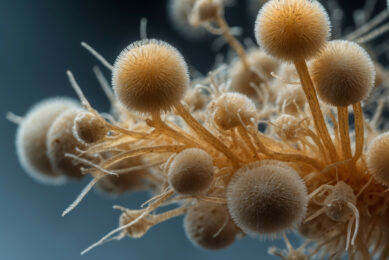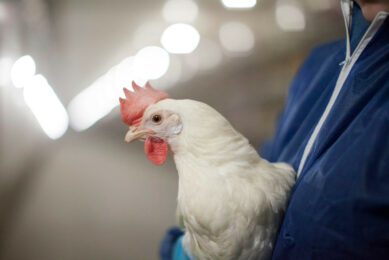Pine needle powder as a natural antioxidant for broilers

A study was conducted in Turkey to examine the effects of the supplementation of pine needle powder on the growth performance, breast meat composition, and antioxidant status in broilers fed linseed oil-based diets.
A lot of research has been conducted to modify the nutrient profile of poultry meat, especially polyunsaturated fatty acid (PUFA) content. One of the major issues confronting this modification, however, includes “lipid oxidation”, as an increase in the PUFA content of meat makes it more prone to the oxidative deterioration. Today, the use of herbal supplements in animal diets has become very popular, and the attention of many researchers has shifted towards natural additives.
Pine needle study
In Turkey, Pinus brutia, commonly known as Turkish Red Pine, has been a source of traditional medicine in humans for years. Preliminary research suggested pine tree needles as a useful source of natural antioxidants in the diet, and studies showed that supplementation of pine needle powder into broiler diets enhanced their antioxidant capacity without altering their performance. In this study, a total of 210, Ross-308 1-day-old male broiler chicks were allocated to 5 experimental groups. Broilers were fed a linseed oil-based basal diet supplemented with 0% (control), 0.25% (P1), 0.50% (P2), 0.75% (P3), and 1% (P4) pine needle powder.
Broiler performance
During the 42-day feeding period, no significant differences were observed between experimental groups for body weight gain, feed intake, and feed conversion ratio; however, carcass yield was increased linearly with pine needle powder supplementation.
Antioxidant status of meat and liver
Early studies reported the prominent antioxidant potential of pine needle powder supplements to broiler diets, but its efficacy in PUFA-enriched meat was not investigated. Malondialdehyde (MDA) levels in breast meat samples stored at different time intervals were recorded. Prominent results were observed at the 10th day of storage where P2 supplemental group resulted in a significant decrease in MDA levels in breast meat when compared to the control group. An increase in pine needle powder supplementation produced a linear decrease in breast meat MDA levels. MDA levels in liver tissues also decreased linearly with an increase in PNP supplementation. Furthermore, blood serum total oxidation status tended to decrease with pine needle powder supplementation.
In conclusion
The results from this study suggest that pine needle powder supplementation may be a viable option as a natural antioxidant for broiler diets to improve the animal antioxidant status and meat oxidative stability. However, more research is needed to further examine the different antioxidant systems in the animal’s body and to determine the maximum dietary supplementation for pine needle powder supplementation into broiler diets without toxicity effects.











